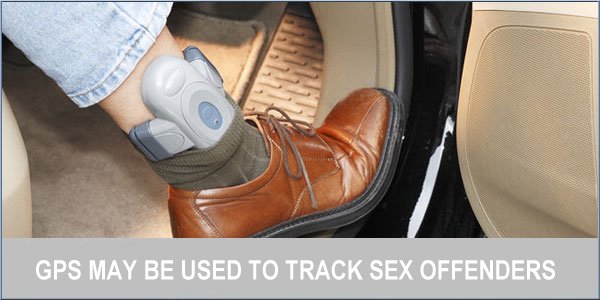|
|
 |
 |
 |
 |
GPS Tracking Could Monitor UKs Most Dangerous Offenders
Article by: rob brady
Date: 4 May 2012

Following an independent review of the Ryan Yates case, the use of GPS tracking has been suggested to the Scottish Government as a viable way of monitoring Britain's most dangerous sex offenders.
Ryan Yates, who was caught attempting to re-offend days after his release from prison, was given a further custodial sentence and warned he may never be released again.
This prompted an independent investigation into his case, with the Scottish bodies responsible for his tracking accused of multiple failings.
As a potential solution, GPS tracking of dangerous criminals such as Yates has been suggested, with the idea already being considered as a way to enforce community punishments on lower-level offenders.
This new law enforcement system, which would use GPS to monitor the movements of criminals by combining it with electronic tags, has already gained support from English Justice Secretary Ken Clarke, with this new proposal expected to receive a similar reception in Scotland.
Scottish Justice Secretary, Kenny MacAskill, denied claims that Scotland's current monitoring system was inefficient, claiming it has "one of the most robust systems for managing sex offenders anywhere in the world. However, if processes can be improved and strengthened further, our law enforcement agencies and the Scottish Government will take action", he added.
He also declared the government was "actively considering" the use of GPS in monitoring dangerous offenders.
Source
| | |  |
| Comments
|
 Posted by JockTamsonsBairn on Fri May 04, 2012 11:57 am Posted by JockTamsonsBairn on Fri May 04, 2012 11:57 am |
 |
How do current tags work? Are they just "lack of proximity" detectors?
Jock
TomTom Go 940 LIVE (9.510, Europe v915.5074 on SD & 8.371, WCE v875.3613 on board) |
|
 Posted by exportman on Fri May 04, 2012 3:52 pm Posted by exportman on Fri May 04, 2012 3:52 pm |
 |
Current tags are RFID.
A base station is placed in the offenders home with a dedicated connection to a monitoring center, and they ( the tagged offender) have to be present during curfew or at least within a certain distance of the base station. If the tag is tampered with it set off an alarm and that is reported back to control.
A study is being undertaken into the effectiveness of these tags and trials with RFID sniffers in shopping centers that can identify and report therefore tracking the offenders. This information was used during the recent riots to help identify some of the offenders.
The system could be used more widely especially in areas with large number of offenders where all the base stations could report proximity reading so you would know if Johnny was someplace where he should not be. Eg associating with another offender they have been banned from but it is not at present used in this way.
|
|
 Posted by wetsleet on Sat May 05, 2012 9:35 am Posted by wetsleet on Sat May 05, 2012 9:35 am |
 |
If these criminals still present a danger then they should be kept in prison. There are just too many ways that the unemployed creative mind can create to outwit any GPS/tracking system, as already demonstrated by employees who have been given such trackers by their overweening employers. Prison is more difficult to outwit.
My further fear is that mission creep will set in, and trackers will come to be used for non-dangerous criminals, on the argument that that since they are not dangerous an (expensive) prison sentence is not mandated, yet nevertheless they do need to be controlled to prevent re-offence. So recidivist car thieves may be tagged and banned from the vicinity of any carparks, for example. ASBOs would be banned from specific neighbourhoods, etc. All very logical, until one day we wake up and find the state is monitoring the movements of most of the people they don't like for whatever genuine reason.
|
|
 Posted by shelmo on Sat May 05, 2012 9:59 pm Posted by shelmo on Sat May 05, 2012 9:59 pm |
 |
| wetsleet Wrote: | | If these criminals still present a danger then they should be kept in prison. |
I agree convicted criminals should be kept in prison, and I believe that there should not be time off for good behavior.
If a Judge sees fit to pass sentence (x) then sentence (x) should be served, I also think that they have it too easy in prison.
|
|
|
|
 |
|
|
 |
 |
 |
 |
|
|